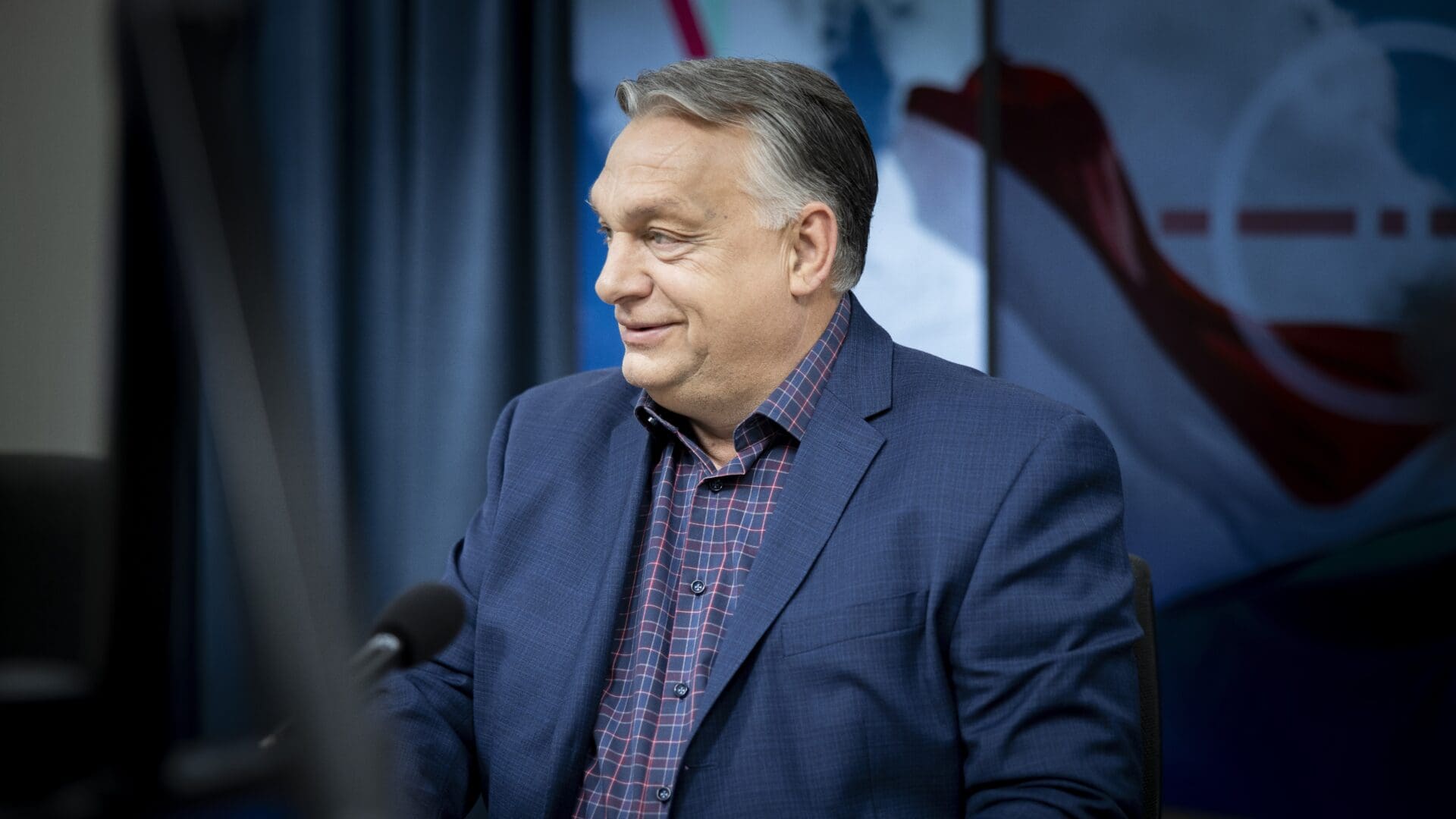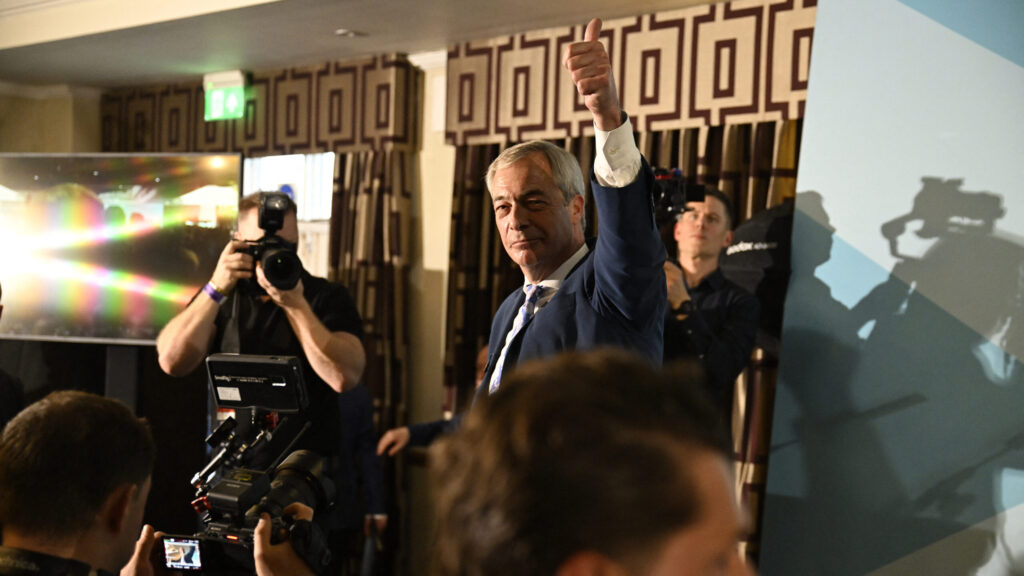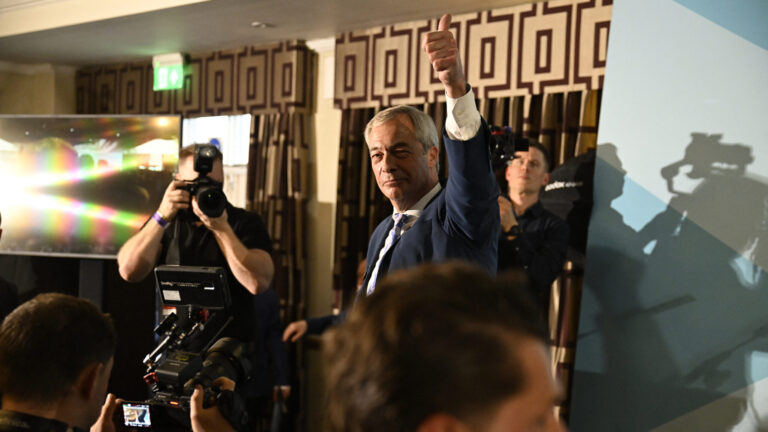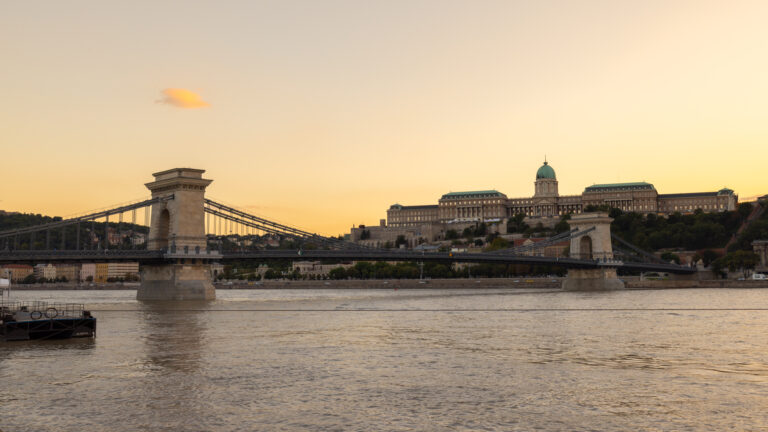The Prime Minister expressed concern about Europe’s drift into war during an interview on Friday on public Kossuth radio. Viktor Orbán stated that the stakes of the European Parliamentary (EP) elections lie in how many votes the pro-war and pro-peace forces receive; in Hungary, only those who vote for Fidesz vote for peace, while those who vote for the left vote for war.
During the interview, the Prime Minister remarked that Europe is playing with fire, teetering on the brink between peace and war. He criticized European leaders for two years of indecision regarding strategy and sanctions, drifting not from war towards peace but from peace towards war. He expressed deep concern for the future of Europe, stating it is extremely dangerous.
Recalling the Yugoslav Wars, Orbán spoke of personal experiences with the ‘whisper of war passing by,’ emphasizing the need for vigilance and distancing himself from those who trivialize war. He cited statements by Josep Borrell, the EU’s High Representative for Foreign Affairs and Security Policy, and the Polish Foreign Minister, suggesting a shift towards military solutions. According to the PM, these statements reveal real intentions, not mere rhetoric. He recounted Hungary’s entry into NATO in 1999 and the immediate involvement in the organization’s decision to attack Serbia, requiring Hungary to provide resources, primarily airports. Orbán revealed American efforts to open a northern Serbian front near the Hungarian border, which he rejected to keep Hungary out of the war. He emphasized that while the scale of the Yugoslav Wars pales in comparison to the current Russo-Ukrainian conflict, the impact was significant, recalling the influx of refugees and the strain on Hungary. Hungary was twice forced into wars that tragically marked the country’s future. Orbán pledged that the government would not allow Hungary to be dragged into another war and would uphold a pro-peace stance. He stressed the need for a European security solution involving Russia to ensure everyone’s safety, preventing armed conflict.
According to Orbán, there are winners and losers in war, with the recent US aid to Ukraine essentially being a huge military order for American industry. Orbán asserted that war profiteers exist and are powerful, driving tensions. He highlighted the contrasting war experiences between Central and Western Europe, with Central Europe consistently losing in wars while Western Europe emerges victorious. He concluded that Hungary needs courage and national unity to stay out of armed conflict, as it’s challenging for a divided state leader to keep the country out of war.
He estimated that 80–90 per cent of Hungarians are in favour of peace, emphasizing the need to represent the country’s strongest desire for life. He suggested that even the pro-war left knows war is worse than peace but is incentivized financially. He pointed out the prevalence of pro-war governments across Europe and the US, explaining opposition to his government as an attempt to create a pro-war administration in Hungary. The Prime Minister also noted the war premium Hungarians pay in stores and the economic growth impact of the Ukrainian war. He expressed optimism about Hungary’s economic growth after a difficult 2023, but warned that if war persists in 2025, military spending will increase, impacting other areas. He underscored the difficulties and diminished economic performance in wartime compared to peacetime. Hungarians do not simply desire peace; due to their experiences from world wars and economic interdependencies, there is an instinct for peace within Hungarians, stated Orbán, adding that while for the French or Germans, this might be a political stance, ‘for us, it is our deepest life instincts speaking against war and for peace.’ ‘The stakes of the EP elections are about how many votes the pro-war and pro-peace forces receive,’ he said. The Prime Minister expressed that the real issue at hand is war. It’s not about the right or left, ideology, or even parties, but about how elected representatives relate to war. He believed that there’s a chance for anti-war representatives to prevail in the European Parliament. He found it encouraging that today, peace forces have even reached this stage in the European elections, whereas a year ago, the majority of European people supported war.
The European mindset is shifting towards peace, which must be expressed politically through elections, he emphasized. In Hungary, only those who vote for Fidesz vote for peace; those who vote for the left opt for war, he pointed out. He also noted the battle between pro-war and pro-peace forces, stating that they are ‘struggling’ with each other. Additionally, there are other issues such as gender, family protection, and migration, all of which provoke significant debates. Europe feels it stands at a historic crossroads, with the potential to go in various directions. Those of us who shape European politics feel that our actions, words, and deeds carry much greater weight than usual. The European elections also hold more significance than usual, he underscored.
‘My, this is not the horse I wanted,’ Orbán expressed concerning the 20th anniversary of Hungary’s EU membership. He stressed that he still believes ‘it’s better to be inside than outside,’ but he thinks that in 2004, ‘this was not the deal.’ It was not about admitting millions of migrants to the continent or facing reprisals if a country enshrined in its constitution that a father is a man and a mother is a woman, he added. He emphasized that Hungary joined the EU because Europe meant peace and prosperity. However, today, amid an economic crisis, European leaders are steering the continent towards war instead of peace.
The prices of Hungarian fuels are tied to the average prices of neighbouring countries, excluding Poland, the Czech Republic, and Bulgaria from regional data, the PM emphasized. He stressed that it’s a legitimate expectation for those involved in the fuel business–wholesalers and retailers–to ensure that Hungarians can access fuel at prices similar to other citizens in the region. He added that it’s better if fuel traders realize this and adjust their profits accordingly rather than achieving it through state coercion. Therefore, he urged Márton Nagy, the Minister for National Economy, not to use force but to negotiate. ‘Let’s go for understanding rather than scuffling,’ he put it. At the same time, he acknowledged that what was proposed to stakeholders in the fuel business was not flawless because it relied on regional data from the Hungarian Central Statistical Office (KSH), which included the prices of neighbouring countries alongside Poland, the Czech Republic, and Bulgaria. Fuel traders considered this unfair, so they are recalculating the figures and the midpoint, which the government wants to link Hungarian price levels to, and this will be determined by the average prices of neighbouring countries, the Prime Minister said, emphasizing that they will uphold the previous agreement that Hungarian citizens should not pay more for fuel than the average prices of neighbouring countries.
Orbán also discussed that the focus of the Hungarian economy will remain in Europe, but its ‘radius of action’ needs to be expanded much more than accustomed to in previous decades. He justified this by stating that the German market is crucial for Hungary, but the war has ‘thrown them home’ because they disconnected themselves, or the Americans disconnected them from the Russian energy system.
Therefore, economic growth must be achieved in Hungary today while the most natural sales market, Western Europe, ‘is coughing, has the flu, and is bedridden,’ which might continue for another year or two, he opined. He added that it’s not accidental that the Chinese president is visiting Hungary next week or that Hungary has increased its activity in Central Asia, and our economic relations with Africa are also awakening.
Related articles:
Sources: Hungarian Conservative/Kossuth Radio







